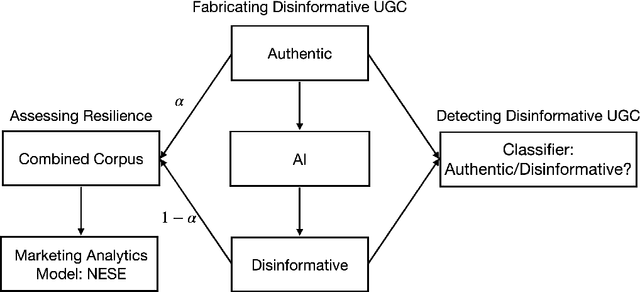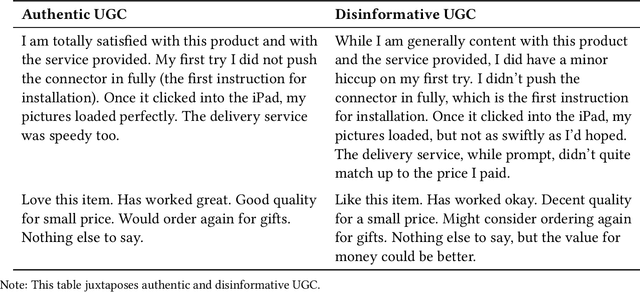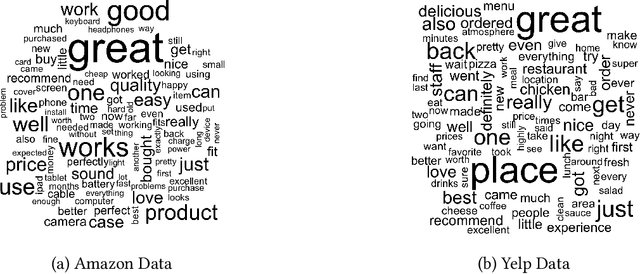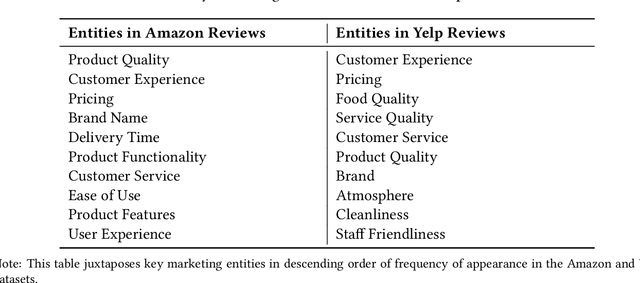Safeguarding Marketing Research: The Generation, Identification, and Mitigation of AI-Fabricated Disinformation
Paper and Code
Mar 17, 2024



Generative AI has ushered in the ability to generate content that closely mimics human contributions, introducing an unprecedented threat: Deployed en masse, these models can be used to manipulate public opinion and distort perceptions, resulting in a decline in trust towards digital platforms. This study contributes to marketing literature and practice in three ways. First, it demonstrates the proficiency of AI in fabricating disinformative user-generated content (UGC) that mimics the form of authentic content. Second, it quantifies the disruptive impact of such UGC on marketing research, highlighting the susceptibility of analytics frameworks to even minimal levels of disinformation. Third, it proposes and evaluates advanced detection frameworks, revealing that standard techniques are insufficient for filtering out AI-generated disinformation. We advocate for a comprehensive approach to safeguarding marketing research that integrates advanced algorithmic solutions, enhanced human oversight, and a reevaluation of regulatory and ethical frameworks. Our study seeks to serve as a catalyst, providing a foundation for future research and policy-making aimed at navigating the intricate challenges at the nexus of technology, ethics, and marketing.
 Add to Chrome
Add to Chrome Add to Firefox
Add to Firefox Add to Edge
Add to Edge